‘Safe and Secure’: Behind the scenes with ACCESS operator Tammy Lambert
When Tammy Lambert sits in the driver’s seat, she never forgets that someone else’s life is in her hands.
It’s a lesson she learned early in life as she shuttled her aunt on trips to the grocery store and doctor’s appointments.
“She let me know, ‘I need to feel safe, so you need to put both of your hands on (the wheel),” Lambert said. “She believed that you need to be responsible when you’re driving.”
For the last 23 years, Lambert has made a living keeping her hands on the wheel — and taking riders where they need to go – as an operator for Kitsap Transit’s ACCESS program.
“Everything just kind of fit into place for me to be here, like this is where I’m supposed to be,” Lambert said.
ACCESS operators are part driver, part customer-service agent, and Lambert embodies the best qualities of both. ACCESS drivers pick up and transport Kitsap Transit residents who can’t travel by themselves, either due to age or disability. It’s a job that requires empathy, punctuality and attention to detail.
“You have to have that attitude that somebody is watching you when you're in the seat,” Lambert said. “You want them to feel safe and secure and trust you to drive them safely to and fro.”
“I think it’s good to challenge ourselves.”
A Bremerton native, Lambert left Kitsap County after high school, looking for a change of scenery. Her travels took her to King County and Baton Rouge before returning home. After a divorce in 1996, Lambert found herself suddenly the sole breadwinner, financially responsible for three children between the ages of six and 13. She was doing clerical work at the YWCA in Port Orchard when she heard Kitsap Transit was hiring drivers.
“I found employment that helped me to really be able to take care of my children without being in the system, needing financial assistance from anyone else,” Lambert said.
She picked ACCESS over Routed, partly because driving 40-foot buses seemed intimidating at the time. It wasn’t easy at first: ACCESS shifts required Lambert to call in nightly and receive her schedule for the next day, which could vary in time and location. Those daily shift changes meant some days Lambert didn’t get see her kids, who stayed with her mother while she worked.
Flexibility is key to being an ACCESS operator, Lambert said. Some regular riders make the same trips daily or weekly and can be scheduled ahead of time, but any one-off trips aren’t scheduled until late the day before. Because they work with vulnerable populations, ACCESS operators receive special training to ensure they keep passengers safe while boarding and deboarding. Different riders have different needs that require drivers to adapt.
“It’s a challenge,” Lambert said. “I think it’s good to challenge ourselves.”
In addition to paid training, new Kitsap Transit ACCESS “extra board” operators and full-time operators are guaranteed a minimum of 30 hours per week. Under the current labor-union contract, ACCESS operators start at $20.92 an hour in their first year after completing probation, with annual increases, making $28.52 an hour by their seventh year of employment.
Lambert is now a senior driver at Kitsap Transit and has won recognition for her driving skill. Since 2003, she has been awarded nine Driver of the Month awards, two Driver of the Year awards and a 19-Year Safe Driving Award – an honor which recognizes almost two decades of cumulative accident-free driving.
Driving a bus is more than just a stable career for Lambert – the daily interactions with her passengers are a big part of why she enjoys coming to work every day. ACCESS operators can be part of the support system for aging or disabled adults, some of whom live alone and relish the opportunity to chat with their driver.
“That’s the humanity part, the neighborly part of the job that’s also rewarding,” Lambert said.
Despite the initially unpredictable hours and long days, Lambert said in the long run, “everything that came with working (for Kitsap Transit) has been to my benefit.”
Now, Lambert said she has enough time to relax after work with her husband – fellow ACCESS driver Ray Lambert – at their home in Port Orchard. Thanks to a living wage and dual incomes, the pair are able to live a “life of leisure,” Lambert said.
“What I was told when I first started was: If you like to drive and you like people, you’re in the right place,” Lambert said.


